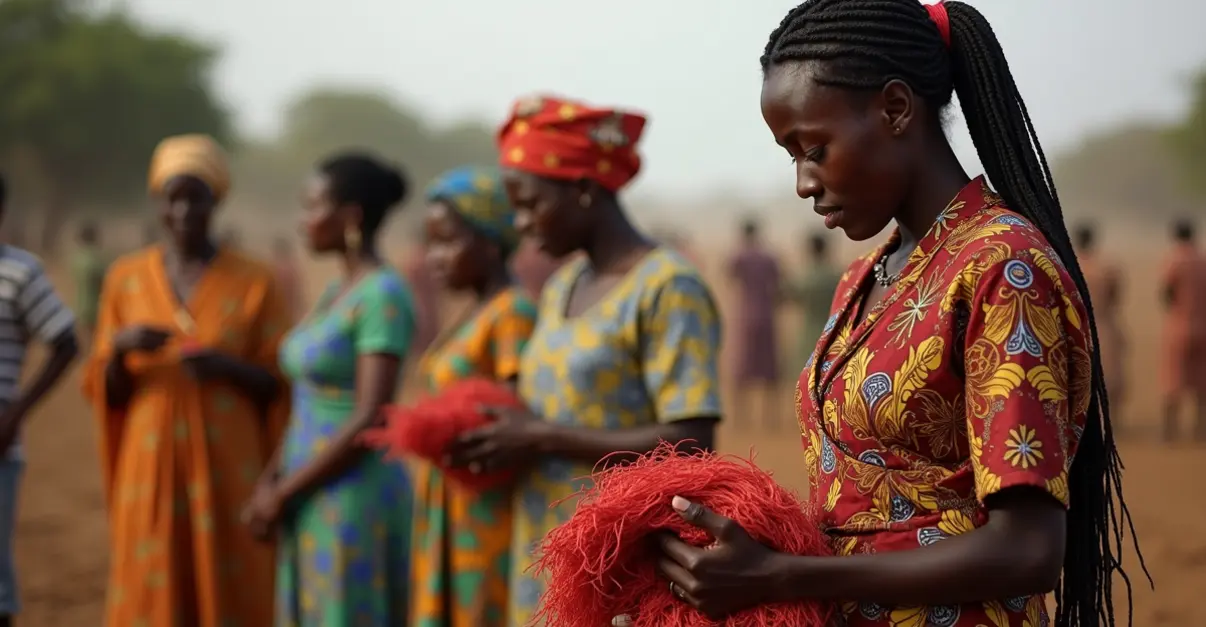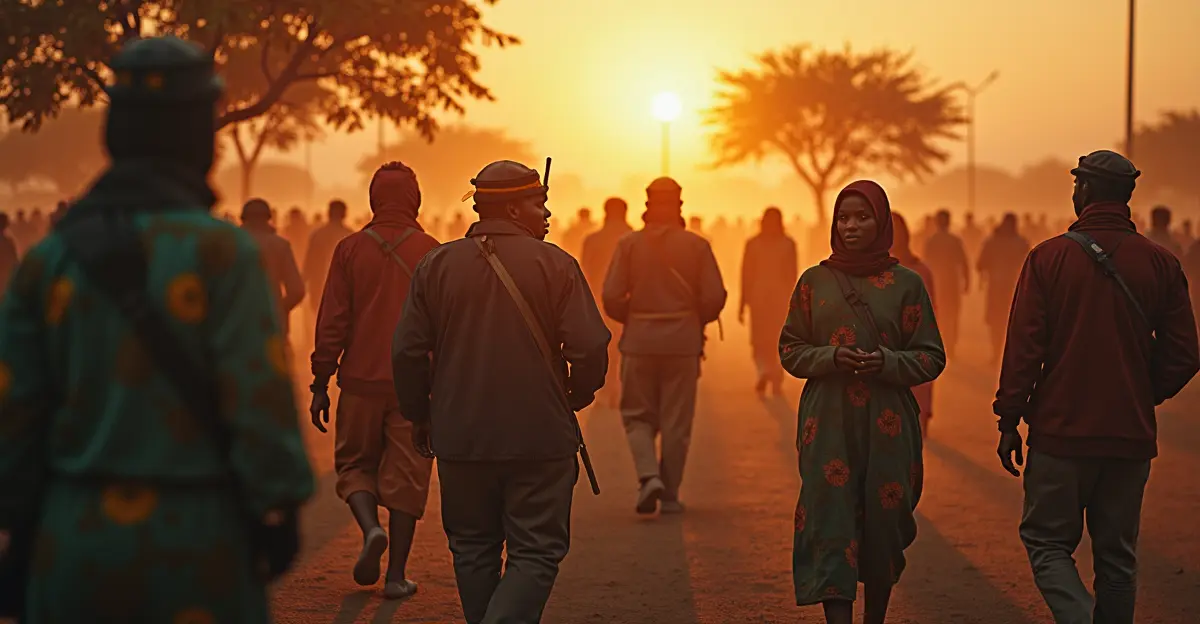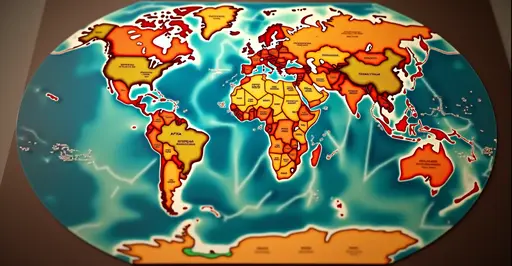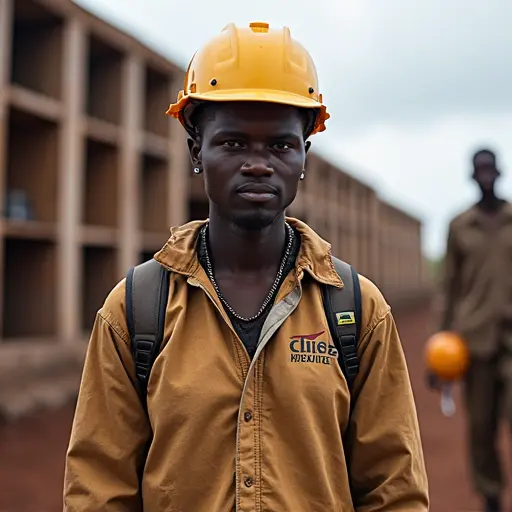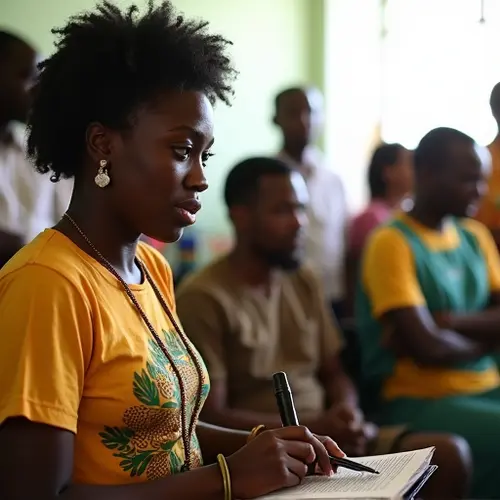African Economies Face Crisis as Key Trade Program Ends
The future of trade relations between the United States and 32 African nations hangs in the balance as the African Growth and Opportunity Act (AGOA) expired on September 30, 2025, leaving thousands of jobs and entire industries at risk across the continent. The landmark trade agreement, which provided duty-free access to American markets for over 6,000 African products since 2000, has become a casualty of political uncertainty and shifting trade priorities in Washington.
Lesotho's Denim Industry on the Brink
In the mountain kingdom of Lesotho, known as Africa's 'denim capital,' textile factories that once hummed with activity now stand silent. The country's economy, heavily dependent on AGOA benefits, faces potential collapse as American buyers like Levi's and Wrangler have already canceled orders following the expiration of the trade pact. 'There is a feeling of betrayal in Lesotho that they were first allowed to make cheap jeans for the US and then so easily cast aside,' says Africa correspondent Elles van Gelder.
Lesotho exported approximately $237 million worth of textiles to the United States annually, accounting for about 11% of its GDP. The crisis threatens over 12,000 garment workers, predominantly women who dominate the textile industry in this nation where half the population lives below the poverty line. According to recent reports, the situation has become so dire that the government declared a two-year state of disaster.
Broader Impact Across Africa
The consequences extend far beyond Lesotho. In Kenya, approximately 80% of textile and clothing production goes to the United States, employing nearly 70,000 people. Madagascar's vanilla industry, which exports three-quarters of its harvest to American markets, also faces uncertainty. 'The possible end of the agreement will be particularly felt in the five countries with high utilization rates, like Lesotho and Kenya,' says Professor Armin Cuyvers, who teaches extensively in African countries. 'Companies there have focused on American supply chains. If America doesn't continue the deal, there will certainly be damage.'
Historical Context and Missed Opportunities
AGOA was established in 2000 as a flagship initiative of President Bill Clinton, designed to stimulate trade and give the United States a foothold in the region. The program allowed more than 1,800 African products—from auto parts from South Africa to cocoa from Ivory Coast and crude oil from Angola—to enter American markets without import duties.
However, Professor Cuyvers notes that the agreement hasn't been as successful as initially hoped. 'One of Clinton's goals was to develop Africa economically, but that goal has been very limitedly achieved. Additionally, America wanted to better position itself in the region, and that hasn't succeeded either.' This failure is largely attributed to China's emergence as Africa's largest trading partner and creditor since the turn of the century.
China's Growing Influence
While the United States struggles with AGOA's renewal, China has established agreements with 53 African countries, allowing thousands of products to be exported tax-free to Chinese markets. 'The US is a much smaller trading partner for Africa than Europe and China,' explains Cuyvers. 'The fact is that the American approach doesn't work: it doesn't contribute to product diversification.'
Professor Chibuike Uche of the African Studies Centre Leiden agrees, emphasizing that poverty increases when no value is added to natural resources or products. 'The Chinese understand that well. They provide loans to cocoa companies in Ghana, for example, so they can process the beans into chocolate and then export it.' Recent analysis suggests China is strategically positioned to fill the economic void created by AGOA's expiration.
Economic Diversification Challenges
The fundamental problem, according to experts, is that many African sectors remain in the early stages of the value chain. 'Real economic profit only comes in the later stages of processing,' says Cuyvers. 'Take raw cocoa beans: you earn almost nothing with them. However, if they are processed into chocolate or other end products, as Nestlé does, the profit is much higher.'
This lack of value addition has limited AGOA's developmental impact. While the program gave a significant boost to the textile and clothing sector, enabling countries like Lesotho and Kenya to compete with major Asian exporters such as Bangladesh and Vietnam, it failed to stimulate broader economic transformation.
Political Uncertainty and Future Prospects
The expiration comes amid political uncertainty in Washington, where bipartisan legislation to extend AGOA until 2041 has stalled. Senator John Kennedy recently introduced the AGOA Extension and Bilateral Engagement Act to extend the program for two years while strengthening U.S. trade interests and countering Chinese influence in Africa. However, with the program already expired, the damage may be irreversible for many African businesses.
'How much more damage the US causes, the more room there is for China and Europe to fill part of that gap,' predicts Cuyvers. 'But I don't expect the trade flow to shift within a week; that takes time.' The immediate impact, however, is already being felt in factory closures and job losses across multiple African nations.
The situation highlights the precarious nature of Africa's trade relationships and the urgent need for more sustainable economic partnerships that promote genuine development rather than temporary market access.

 Nederlands
Nederlands
 English
English
 Deutsch
Deutsch
 Français
Français
 Español
Español
 Português
Português
